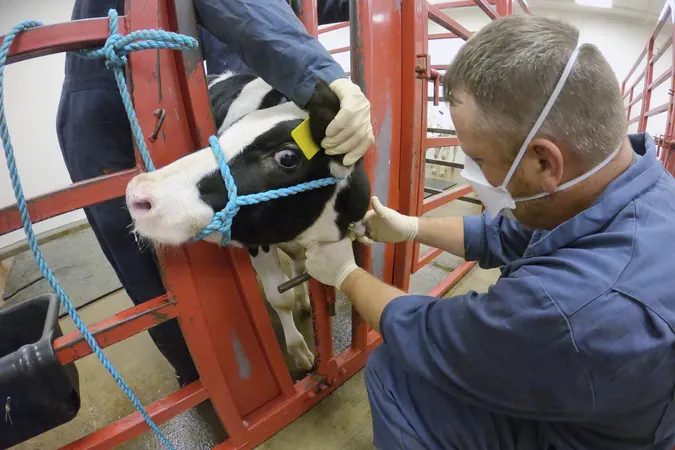
Shocking Rabies Death in Ontario Sparks Urgent Pet Vaccination Advice!
2024-10-07
Author: Noah
Shocking Rabies Death in Ontario Sparks Urgent Pet Vaccination Advice!
In a tragic turn of events, Ontario has recorded its first rabies-related death in 57 years, raising alarm bells about the increasing risk of this deadly virus. A child succumbed to rabies following exposure to a bat found in their bedroom while visiting Gowganda. This harrowing incident underscores the resurgence of rabies in local wildlife, particularly among the bat population.
The Brant County Health Unit reported that the child was hospitalized after exposure on September 6 and passed away approximately two weeks later. This case marks a significant public health concern, as rabies is a disease that is almost universally fatal once symptoms appear, making early intervention critical.
While rabies may seem like a distant threat in some regions—Australia and Iceland are notably rabies-free thanks to rigorous vaccination efforts and stringent import laws—its global impact is staggering. Approximately 70,000 people worldwide die from rabies each year, with dog bites responsible for 90% of human cases.
The rabies virus is transmitted primarily through the saliva of infected animals via bites or open wounds, rapidly traveling through the nervous system to the brain. There are two primary forms of the disease: the "furious" form, characterized by aggression and hyperactivity, and the "paralytic" form, which leads to paralysis and coma. Once clinical signs appear, rabies is nearly 100% fatal, making public awareness and preventive measures vital.
Fortunately, rabies vaccines have been in existence since 1885 and continue to evolve with advancements in medical technology. For those at heightened risk, such as veterinarians, preemptive vaccination is commonplace, while post-exposure prophylaxis featuring both vaccines and immunoglobulins has an impressive success rate of 85-90% when administered promptly.
To curb the spread of rabies, pet owners are urged to vaccinate their animals relentlessly. Even indoor pets are at risk; bats can easily enter homes, and an outdoor excursion could expose indoor pets to the virus. Rabies vaccinations should begin at three months of age, with booster shots administered annually or every three years, depending on the vaccine used.
Importantly, Ontario regulations mandate that all dogs, cats, and ferrets maintain up-to-date rabies vaccinations. Any pet owner whose animal is not current on vaccinations should immediately contact their veterinarian.
Vaccinating your pets is not just a precaution for their health; it is a protective measure for your family and community. With the recent rabies death as a sobering reminder, let's prioritize the health of our pets and loved ones through proper vaccination. Act now—ensure your furry companions are protected!









 Brasil (PT)
Brasil (PT)
 Canada (EN)
Canada (EN)
 Chile (ES)
Chile (ES)
 España (ES)
España (ES)
 France (FR)
France (FR)
 Hong Kong (EN)
Hong Kong (EN)
 Italia (IT)
Italia (IT)
 日本 (JA)
日本 (JA)
 Magyarország (HU)
Magyarország (HU)
 Norge (NO)
Norge (NO)
 Polska (PL)
Polska (PL)
 Schweiz (DE)
Schweiz (DE)
 Singapore (EN)
Singapore (EN)
 Sverige (SV)
Sverige (SV)
 Suomi (FI)
Suomi (FI)
 Türkiye (TR)
Türkiye (TR)